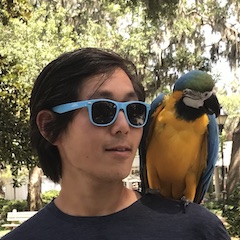Only funders can stop scientific fraud
Only funders have the ability to take the money away
The subject of this article wants publishers to catch and prevent scientific fraud, through training data sleuths fraud. Who are going to employ these people? Publishers? I know, why not ask the mob to prevent police bribery?
The publishers can’t and don’t want to do anything. They’ll publish whatever they think will get cited more. They’ll publish whatever they can to take that open access fee. They’re businesses, and they’re playing the publication game just like everyone else. Given the publish-or-perish system that has arisen in the last ~60 years, the publishers are largely rational actors in the game. Their goals are set up to publish more science, and they claim the scientists are supposed to be ones doing the rigorous science; the publishers aren’t supposed to be the policemen.
The scientists — they also can’t and don’t want to do anything. They have their own research to worry about. Who wants to be doing journal policing instead? No one’s doing reviews, anyway. Paid reviews won’t work; if you pay too low, you end up insulting people. If you pay too high, you risk creating a review mill and create a bunch more poor incentives. And speaking of incentives — a successful researcher isn’t one that get a Nobel prize (that’s a genius researcher). A regular, successful research is able to land grant money. That’s how you land faculty positions at great universities. Successful researchers are good at raising money.
Having spent some time with Stanford professors, these incentives drive everything. Researchers are in the business of raising money (doing experiments is a nice to have!). No one will admit to this, of course, as the fund raising game is shrouded in (and conflated with) a status game. If you get status, you get funding, and you raise funding (from the right people), you get status. In some ways it’s like getting VC funded — you make a bunch of promises, and hope you get money. Good data be damned. This creates a lot of very poor incentives — teams to overstate their results, experiments with poor results are dismissed as “the summer intern must have swapped the tubes,” etc. You’ll never see this kind of light-weight fraud in a Photoshopped gel, but this happens all around us, in every lab, even at the highest levels.
The system helps the fraudsters — or at least those who cut corners and overstate their results — win. You saw WeWork’s Adam Neumann get off with almost a billion dollars doing the same thing — the same goes for Academia, though with much smaller stakes.
There’s nothing funders like NIH can do though; the review process kind of works, but it can’t catch all the fraud. Did you know that Tier 1 labs like Stanford already get a 50% scoring boost in their grant reviews because of affiliation? This means that if a Stanford prof rates lower on all the other categories than someone from say, UMBC, they might have a better chance to win the grant merely for being associated with Stanford. Nepotism is real.
Originally, I was saying that funding bodies like NIH should catch and punish fraudulent behavior, but after talking with a few program officer friends, I don’t think that’s possible. Their work is too big, and you’ll always let through some bad apples.
They also recognize that the incentives are creating a race to the bottom in terms of fraud, but they don’t think anyone has a good solution to the problem.
Funders are the ones powering the entire ecosystem. They hold the grant reviews, they choose what fields deserve more (cancer) or less (infectious disease) money. They indirectly choose how much money will Elsevier’s pockets. For how much American tax dollars Elsevier receives, they might as well be considered an American company.
What Funders should be doing is creating a reproducibility department, the scientists should be salaried (not be rewarded on “novelty”), and their sole job is to verify and reproduce papers from labs. They’re paid as the maintainers of the scientific literature. And the labs whose work is reproducible? They should receive grant bonuses on future grants.
But then again, the Funders are toothless. They might have a semblance of control of the science narrative in the US, but it’s clear there’s no one at the helm anymore. It’s a narrative they’re either slowly losing control of (or let’s be honest, they lost it during Covid). So it’s kind of like the Government Accountability Office. The office that’s supposed to look after how the Pentagon spends money, but it turns out “we don’t actually know how much the Pentagon spends.”
So maybe that’s the sad reality. The Funders are the only ones with the keys to fix everything, but they’re lost those darn keys a long time ago.
Dorothy Bishop on the prevalence of scientific fraud (HN discussion)
